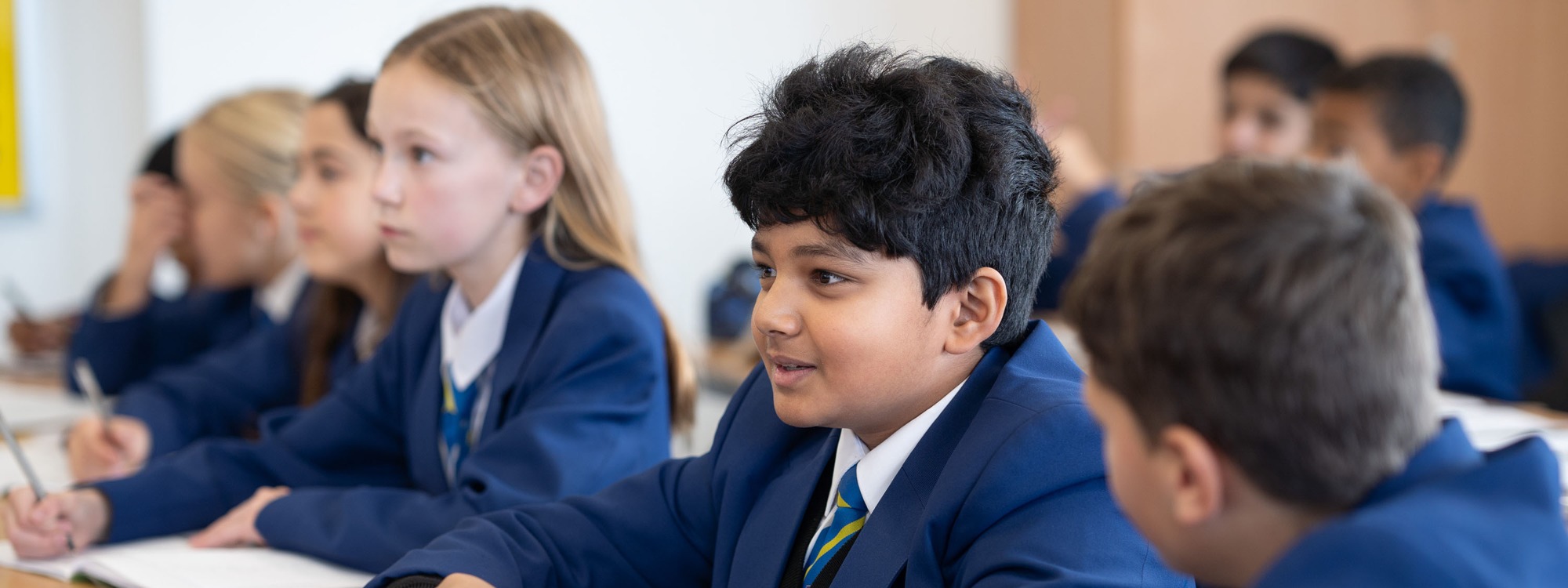- Home
- Parents
- Subject Information
- English
English
“Show me a family of readers, and I will show you the people who move the world.” Napoléon Bonaparte (French military and political leader)
Subject Overview
English across all key stages involves the development of students’ reading, writing and speaking and listening skills. We actively engage our students in reading with the gift of a copy of Northern Lights when they first join the school, through our access to an excellent library and our use of the Accelerated Reader programme and our choice of up to date and older, challenging texts for classroom study. We encourage creativity and skill with annual writing competitions and trips to see live performances whenever possible.
Curriculum Intent
While our curriculum is designed so that students can achieve their full potential at GCSE, we also want them to be critical thinkers whose reading skills and ability to express themselves clearly in both written and spoken language will enable them to successfully navigate adult life.
Curriculum Implementation
We ensure that students are exposed to different forms and genres of literature and non-fiction to ensure a broad and balanced experience. Students debate and discuss texts - often revisiting texts and thinking critically about them in different contexts to develop their understanding of how a text can be manipulated to influence readers in different ways.
Curriculum Impact
Our Key Stage 3 curriculum is designed to give students the opportunity to read widely and to express themselves creatively as well as developing analytical skills. We begin GCSEs in Year 9 developing all the relevant skills and assessment experience as well as studying our GCSE texts.
Key Stage 3 (Years 7–8):
Year 7 is our year of ‘Exploration and Discovery’ when our students start the course with their own copy of Northern Lights and we develop their understanding of analysis, character and genre as well as using the text as an inspiration for their own creative writing. The jump from Year 6 to Year 7 is a challenging one and so the aim is to transition with familiar elements as well as developing new skills.
At the end of Year 7, we have a celebratory ‘Shakespeare Festival’ which we run with the performing arts department.
Year 8 explores ideas of diversity and we also seek to enrich our students’ experience with further reading of both older and newer novels, poetry from across the English speaking world and a Shakespeare play as well as giving students the opportunity to express their own ideas and opinions in speeches and presentations to their peers.
Key Stage 4 (Years 9 - 11):
In KS4 students have five hundred minutes of English per fortnight. We study the AQA specifications for GCSE English Language (8700) and GCSE English Literature (8702). All students study for both qualifications. There are no tiers of entry: the syllabus and examinations are the same for all. Both qualifications are assessed by 100% examination and all examinations will be taken at the end of Year 11. The English Language paper has a spoken language endorsement which is certified separately and the result of which does not affect the GCSE result.
GCSE Specification on the website does not need alteration
Key Stage 5 (Years 12–13):
The department offers opportunities to study English Language, English Literature and Film at A Level.
English Language (AQA) involves study of many aspects of language development and usage. These include language acquisition and language change and variation.
English Literature (Edexcel) involves close analytical study of modern poetry and prose as well as respected texts from the literary canon.
Film (WJEC) involves close analytical study of a variety of films, developing students’ understanding of cinematic techniques and conventions.
Enrichment Opportunities
- We offer book clubs for our 6th form, Mock Trial for our KS3 and KS4 students and a drama club for KS3.
- We also offer trips to Shakespeare’s Globe, Stratford upon Avon and theatre trips for KS4 and KS5 whenever relevant productions are available.
Curious about the curriculum
- Please see our extensive reading list for all Key Stages on the reading section of the school website.
- The department has study guides for all GCSE texts available for students to borrow in Year 11.
Contact Information
If you'd like to find out more please contact Ms K Terry, Subject Leader, on kterry@forest.academy.
